Potatoes, People, and Photobooks: The International Potato Center’s (CIP) Climate Response in the Andes
As climate extremes increasingly challenge Andean agriculture, the International Potato Center (CIP) is working closely with communities in Peru and Ecuador to strengthen resilience and preserve agrobiodiversity.
At the heart of this effort is the Global Centre on Biodiversity for Climate (GCBC) project – a multi-faceted initiative that brings together scientific innovation, traditional knowledge, and local engagement to equip farming systems for a changing future.
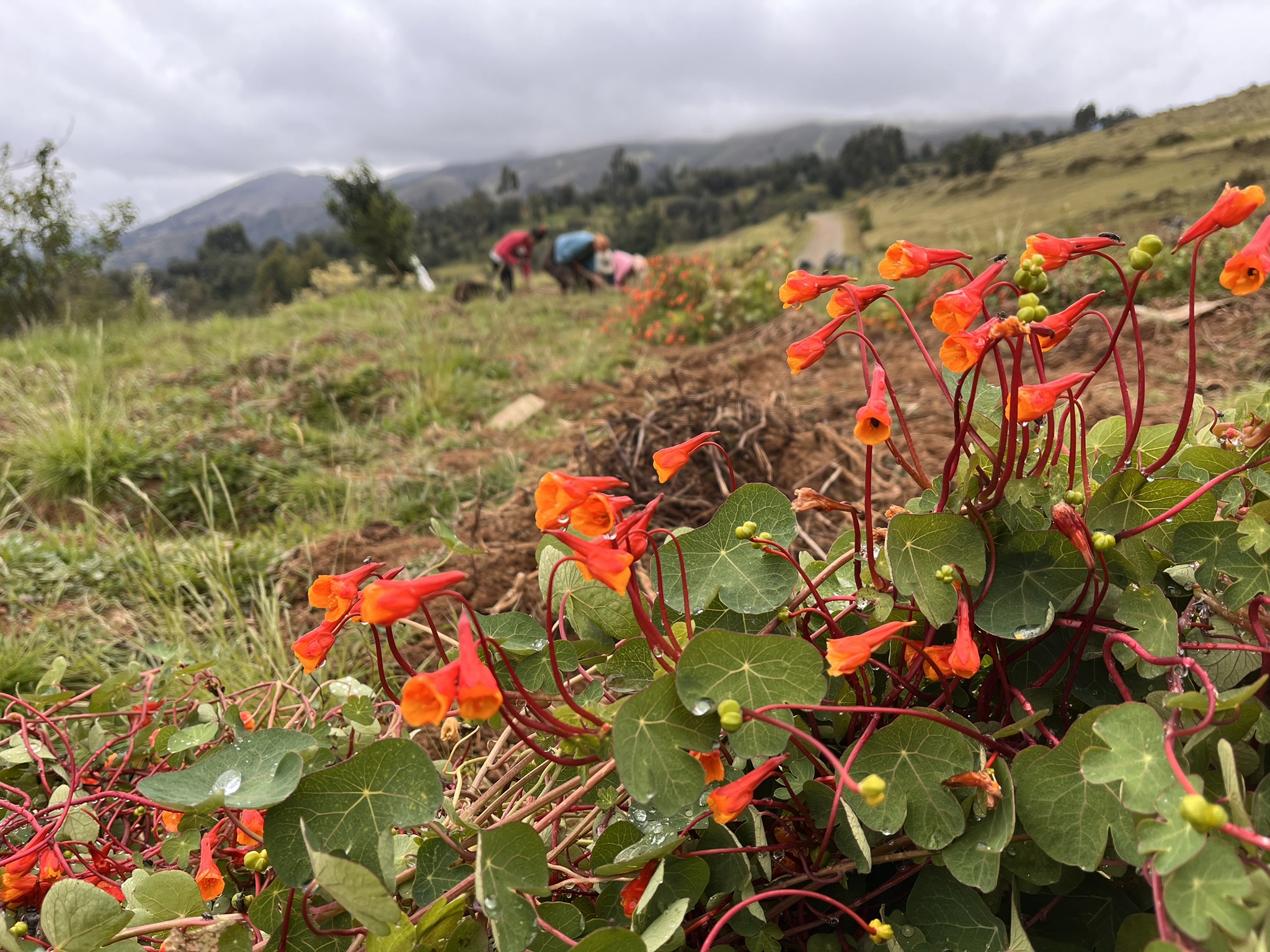
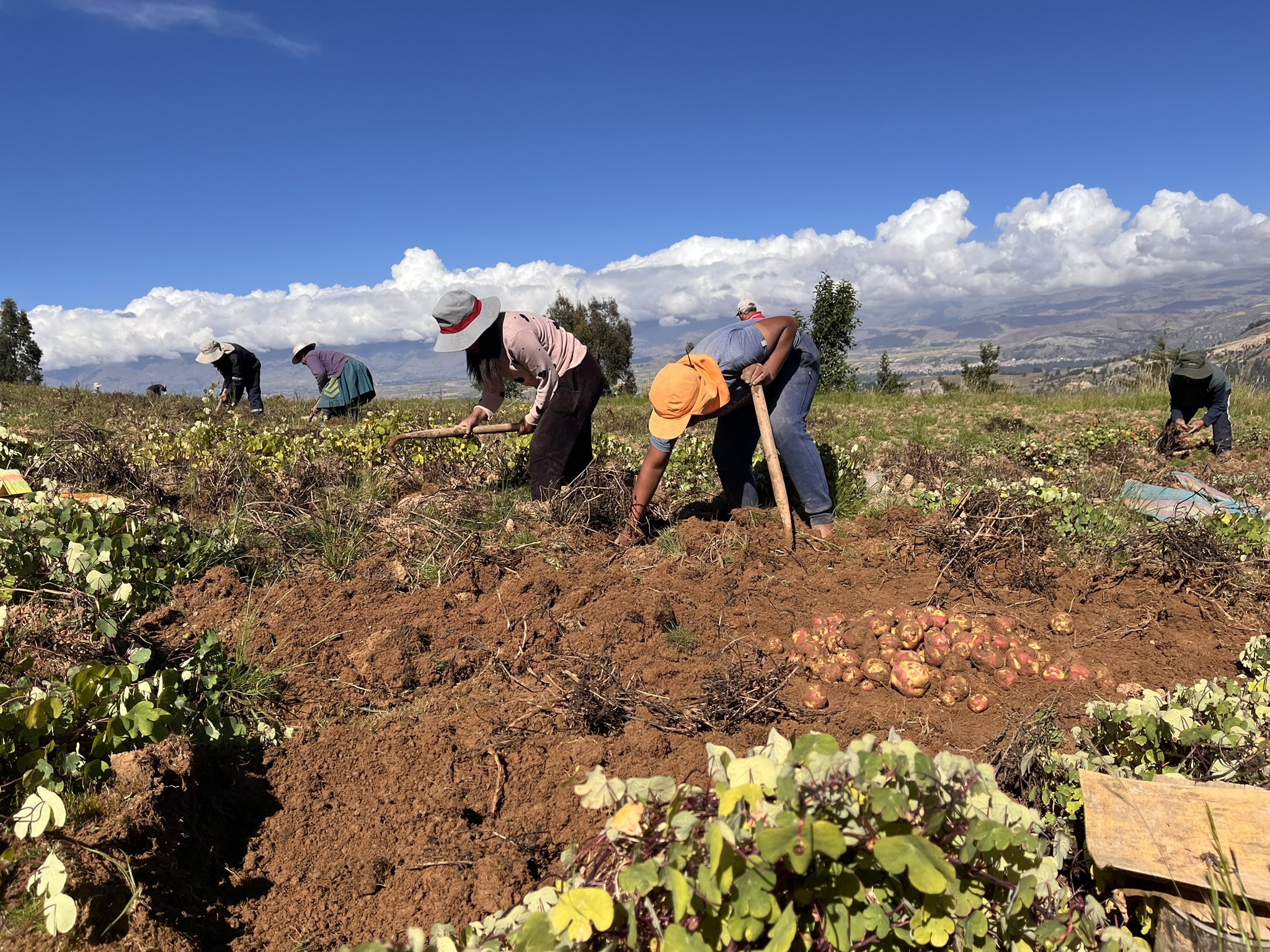
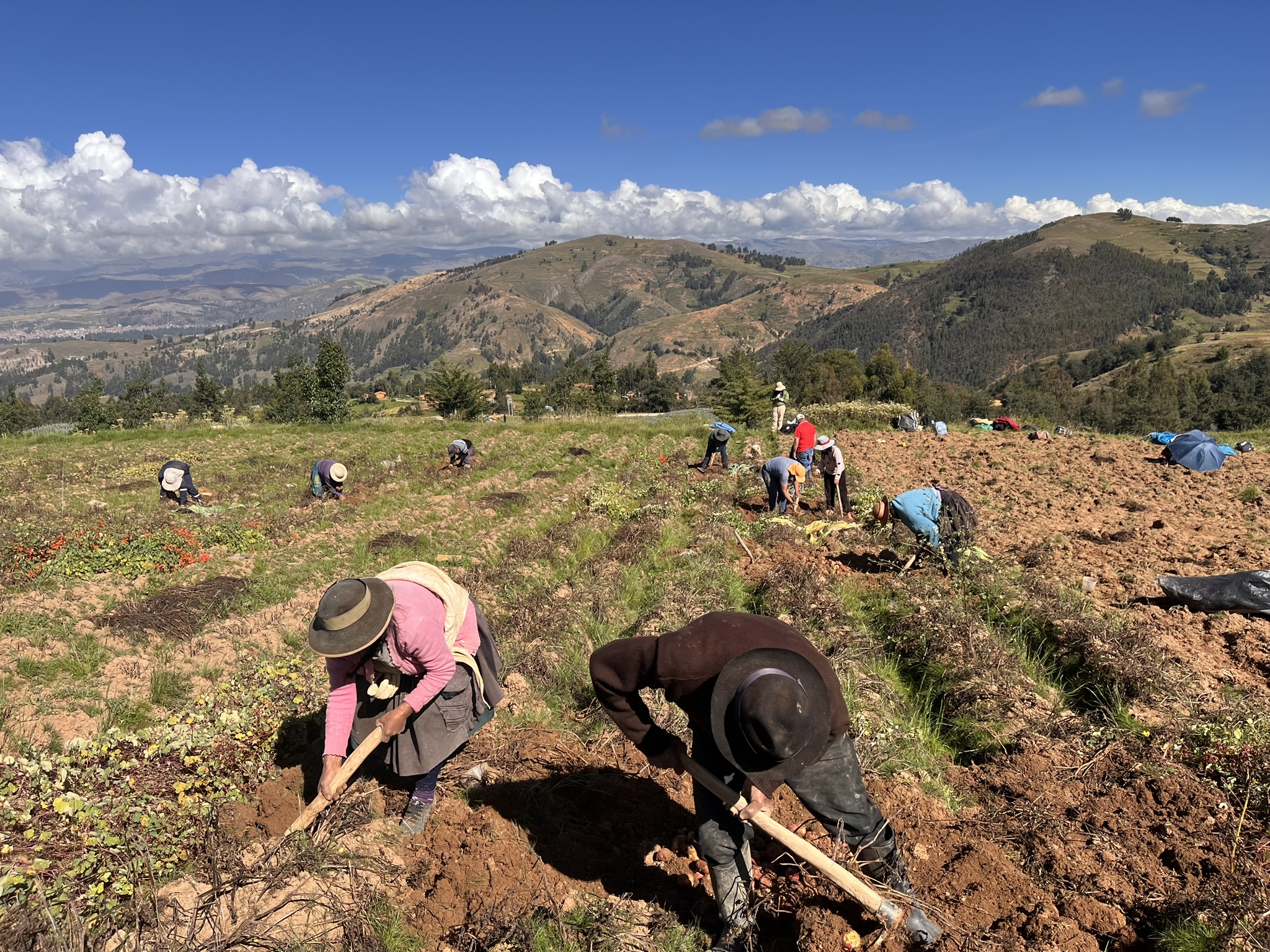
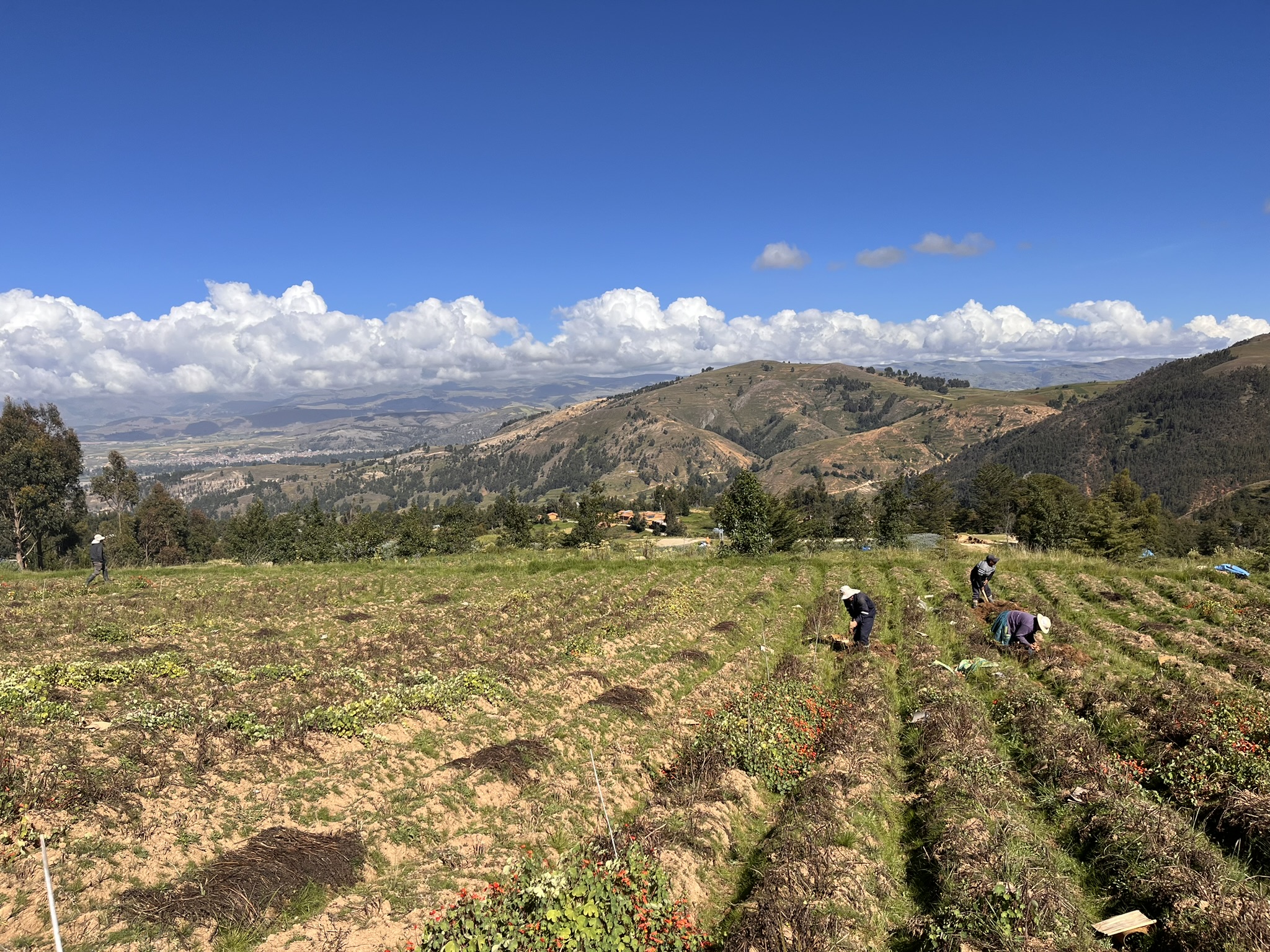
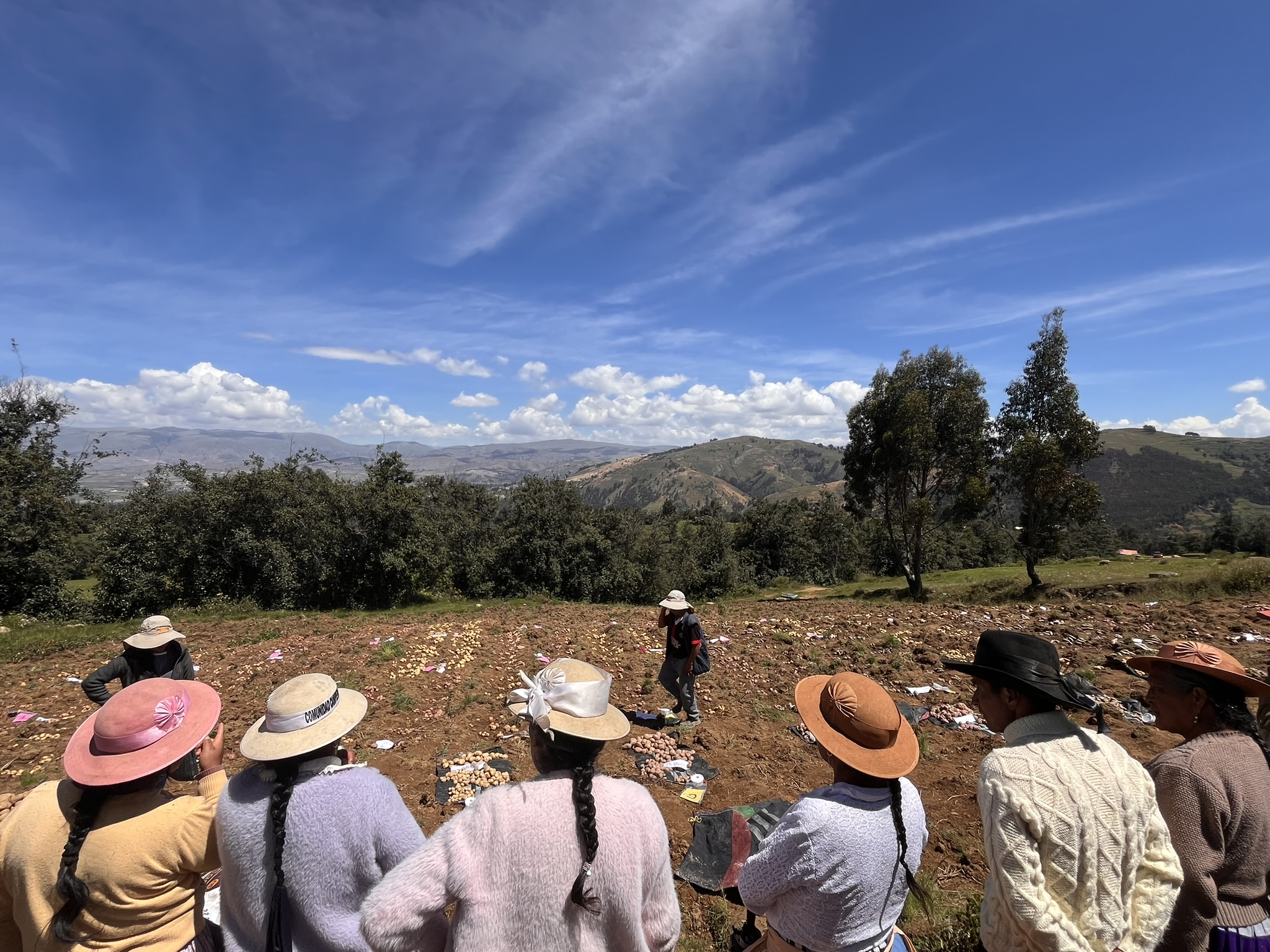
The images show potato harvesting in Peru’s Central Andes, featuring mashua plants used as natural pest control against potato weevils. During participatory trials, farmers evaluate varieties at harvest based on drought tolerance, yield, taste, cooking time, pest and disease resistance, and frost tolerance. They “vote with seeds,” placing their preferred seeds in small containers on potato sacks. Gender preferences are captured using different seed types, and results are then discussed collectively.
CIP’s work begins in the field, where trials are underway to identify native potato varieties that can withstand prolonged drought. These drought-tolerant potatoes offer more than just resilience – they help safeguard the region’s rich potato heritage by keeping a diverse range of varieties in cultivation, even under stress. At the same time, researchers are exploring the promise of mashua, a lesser-known Andean root crop valued for its pest-repelling qualities and nutritional profile. As both a traditional food and a potential ingredient for modern food markets, mashua represents a link between heritage and innovation.
Beyond crop trials, CIP is leading efforts to restore lost agrobiodiversity. Through the repatriation and in vitro propagation of native potato varieties, communities in Peru are reconnecting with crops that had disappeared from their fields. This restoration work is already laying the foundation for community-managed in vitro laboratories – local hubs for conserving potato diversity and advancing climate-adaptive agriculture.
Equally important is building local capacity. CIP supports farmers, students, and indigenous technicians with hands-on training to ensure that scientific advances translate into real-world resilience. One standout initiative is the youth photobook project, which equips young people with cameras and storytelling tools to document the impact of climate change on their lives. These visual narratives elevate local voices, while farmers’ concerns have separately influenced policy and contributed to shaping Ecuador’s national biodiversity policy – an example of how community-centered initiatives can influence broader systems.
Together, these activities form a cohesive strategy grounded in science, collaboration, and cultural respect. CIP’s work through the GCBC project demonstrates that resilience is not just about enduring climate stress – it’s about transforming challenges into opportunities for growth.
By connecting agricultural research with lived experience, CIP is helping Andean communities not only adapt, but thrive.
This report was prepared by Dr Bettina Heider, Project Lead and Genetic Resources Specialist, CIP and Joel Ranck, Head of Communications, CIP.


